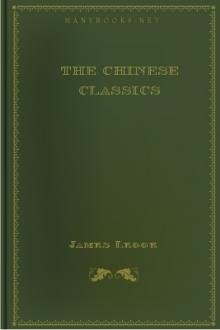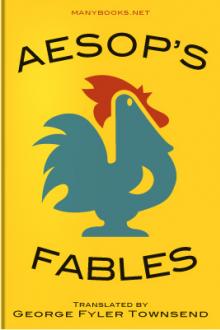Genre Classic. Page - 4

a corresponding sneer--the hour for parting came; and the grief of that moment was considerably lessened by the admirable discourse which Miss Pinkerton addressed to her pupil. Not that the parting speech caused Amelia to philosophise, or that it armed her in any way with a calmness, the result of argument; but it was intolerably dull, pompous, and tedious; and having the fear of her schoolmistress greatly before her eyes, Miss Sedley did not venture, in her presence, to give way to any ebullitions of private grief. A seed-cake and a bottle of wine were produced in the drawing-room, as on the solemn occasions of the visits of parents, and these refreshments being partaken of, Miss Sedley was at liberty to depart.
"You'll go in and say good-by to Miss Pinkerton, Becky!" said Miss Jemima to a young lady of whom nobody took any notice, and who was coming downstairs with her own bandbox.
"I suppose I must," said Miss Sharp calmly, and much to the wonder of Miss Jemima; and the latter having knocked

opher of it. The third is the Chung Yung [5], or 'Doctrine of the Mean,' as the name has often been translated, though it would be better to render it, as in the present edition, by 'The State of Equilibrium and Harmony.' Its composition is ascribed to K'ung Chi [6], the grandson of Confucius. He is the philosopher of it. The fourth contains the works of Mencius.
3. This arrangement of the Classical Books, which is commonly supposed to have originated with the scholars of the Sung dynasty, is defective. The Great Learning and the Doctrine of the Mean are both found in the Record of Rites, being the thirty-ninth and twenty-eighth Books respectively of that compilation, according to the best arrangement of it.
4. The oldest enumerations of the Classical Books specify only the five Ching. The Yo Chi, or 'Record of Music [7],' the remains of which now form one of the Books in the Li Chi, was sometimes added to those, making with them the six Ching. A division was also made into nine Ching, consistin

like to see my father allowing any of us to go to the theatre; he'd sooner have killed us, any day. However, I went for an hour or so and saw Nastasia Philipovna, and I never slept a wink all night after. Next morning my father happened to give me two government loan bonds to sell, worth nearly five thousand roubles each. 'Sell them,' said he, 'and then take seven thousand five hundred roubles to the office, give them to the cashier, and bring me back the rest of the ten thousand, without looking in anywhere on the way; look sharp, I shall be waiting for you.' Well, I sold the bonds, but I didn't take the seven thousand roubles to the office; I went straight to the English shop and chose a pair of earrings, with a diamond the size of a nut in each. They cost four hundred roubles more than I had, so I gave my name, and they trusted me. With the earrings I went at once to Zaleshoff's. 'Come on!' I said, 'come on to Nastasia Philipovna's,' and off we went without more ado. I tell you I hadn't a notion of what w

accustomed to many eyes.
And as each and all of them were warmed without by the sun, so each had a private little sun for her soul to bask in; some dream, some affection, some hobby, at least some remote and distant hope which, though perhaps starving to nothing, still lived on, as hopes will. They were all cheerful, and many of them merry.
They came round by The Pure Drop Inn, and were turning out of the high road to pass through a wicket-gate into the meadows, when one of the women said--
"The Load-a-Lord! Why, Tess Durbeyfield, if there isn't thy father riding hwome in a carriage!"
A young member of the band turned her head at the exclamation. She was a fine and handsome girl--not handsomer than some others, possibly--but her mobile peony mouth and large innocent eyes added eloquence to colour and shape. She wore a red ribbon in her hair, and was the only one of the white company who could boast of such a pronounced adornment. As she looked round Durbeyfield was seen moving alon

l
grace that we greet him, the good one, now."
Wulfgar spake, the Wendles' chieftain,
whose might of mind to many was known,
his courage and counsel: "The king of Danes,
the Scyldings' friend, I fain will tell,
the Breaker-of-Rings, as the boon thou askest,
the famed prince, of thy faring hither,
and, swiftly after, such answer bring
as the doughty monarch may deign to give."
Hied then in haste to where Hrothgar sat
white-haired and old, his earls about him,
till the stout thane stood at the shoulder there
of the Danish king: good courtier he!
Wulfgar spake to his winsome lord: --
"Hither have fared to thee far-come men
o'er the paths of ocean, people of Geatland;
and the stateliest there by his sturdy band
is Beowulf named. This boon they seek,
that they, my master, may with thee
have speech at will: nor spurn their prayer
to give them hearing, gracious Hrothgar!
In weeds of the warrior worthy they,
methinks, of our l

nd Baron Osborne of Kiveton, in Yorkshire; Lord High Treasurerof England, one of His Majesty's Most Honourable Privy Council,and Knight of the Most Noble Order of the Garter.
My Lord,
The gratitude of poets is so troublesome a virtue to great men,that you are often in danger of your own benefits: for you arethreatened with some epistle, and not suffered to do good inquiet, or to compound for their silence whom you have obliged.Yet, I confess, I neither am or ought to be surprised at thisindulgence; for your lordship has the same right to favourpoetry, which the great and noble have ever had--
Carmen amat, quisquis carmine digna gerit.
There is somewhat of a tie in nature betwixt those who are bornfor worthy actions, and those who can transmit them to posterity;and though ours be much the inferior part, it comes at leastwithin the verge of alliance; nor are we unprofitable membersof the commonwealth, when we animate others to those virtues,which we copy and describe from you.

ldManse. And now--because, beyond my deserts, I was happy enoughto find a listener or two on the former occasion--I again seizethe public by the button, and talk of my three years' experiencein a Custom-House. The example of the famous "P. P. , Clerk ofthis Parish," was never more faithfully followed. The truthseems to be, however, that when he casts his leaves forth uponthe wind, the author addresses, not the many who will fling asidehis volume, or never take it up, but the few who will understandhim better than most of his schoolmates or lifemates. Someauthors, indeed, do far more than this, and indulge themselves insuch confidential depths of revelation as could fittingly beaddressed only and exclusively to the one heart andmind of perfect sympathy; as if the printed book, thrown at largeon the wide world, were certain to find out the divided segmentof the writer's own nature, and complete his circle of existenceby bringing him into communion with it. It is scarcely decorous,however,

frequently of a hundred times, more labour than the greater part of those who work ; yet the produce of the whole labour of the society is so great, that all are often abundantly supplied ; and a workman, even of the lowest and poorest order, if he is frugal and industrious, may enjoy a greater share of the necessaries and conveniencies of life than it is possible for any savage to acquire.
The causes of this improvement in the productive powers of labour, and the order according to which its produce is naturally distributed among the different ranks and conditions of men in the society, make the subject of the first book of this Inquiry.
Whatever be the actual state of the skill, dexterity, and judgment, with which labour is applied in any nation, the abundance or scantiness of its annual supply must depend, during the continuance of that state, upon the proportion between the number of those who are annually employed in useful labour, and that of those who are not so employed. The number of us

at who can."
The Fox and the Goat
A FOX one day fell into a deep well and could find no means of escape. A Goat, overcome with thirst, came to the same well, and seeing the Fox, inquired if the water was good. Concealing his sad plight under a merry guise, the Fox indulged in a lavish praise of the water, saying it was excellent beyond measure, and encouraging him to descend. The Goat, mindful only of his thirst, thoughtlessly jumped down, but just as he drank, the Fox informed him of the difficulty they were both in and suggested a scheme for their common escape. "If," said he, "you will place your forefeet upon the wall and bend your head, I will run up your back and escape, and will help you out afterwards." The Goat readily assented and the Fox leaped upon his back. Steadying himself with the Goat's horns, he safely reached the mouth of the well and made off as fast as he could. When the Goat upbraided him for breaking his promise, he turned around and cried out, "You foolish old fellow! If

rds the small hours on a Friday night.
I need say nothing here, on the first head, because nothing can show better than my history whether that prediction was verified or falsified by the result. On the second branch of the question, I will only remark, that unless I ran through that part of my inheritance while I was still a baby, I have not come into it yet. But I do not at all complain of having been kept out of this property; and if anybody else should be in the present enjoyment of it, he is heartily welcome to keep it.
I was born with a caul, which was advertised for sale, in the newspapers, at the low price of fifteen guineas. Whether sea-going people were short of money about that time, or were short of faith and preferred cork jackets, I don't know; all I know is, that there was but one solitary bidding, and that was from an attorney connected with the bill-broking business, who offered two pounds in cash, and the balance in sherry, but declined to be guaranteed from drowning on any hig